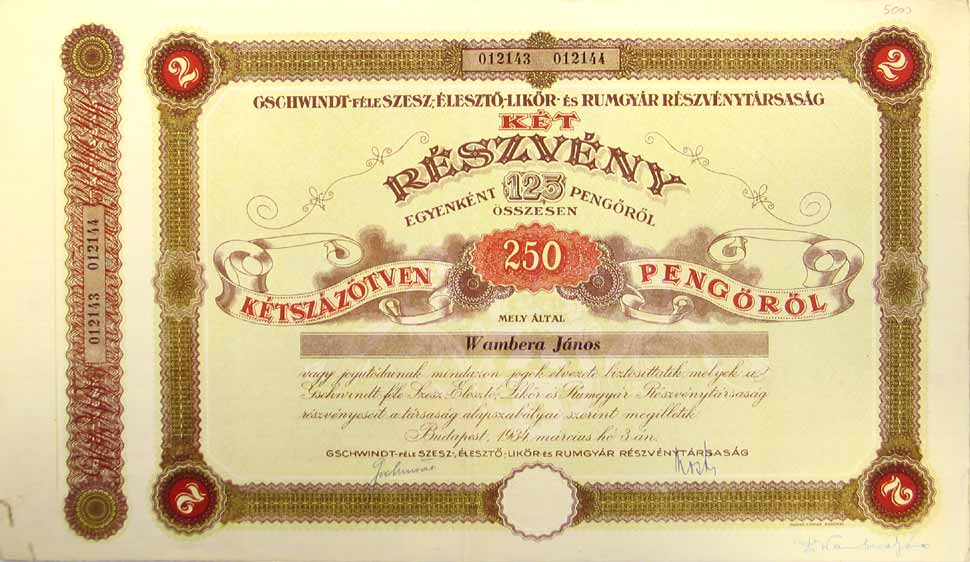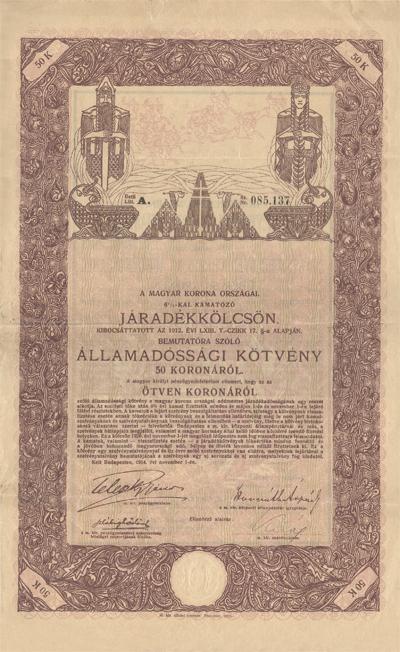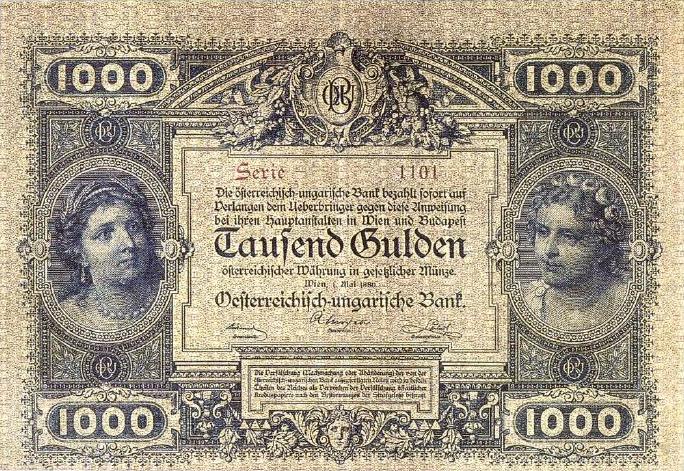

Stocks
Shares are securities that express ownership rights. Shares of that time were not very different from today's shares, perhaps only in that they had a maturity (usually long, 50 years) and repayment was often made by drawing lots for, say, 2% of shareholders in a year and repaying them the face value. In most cases, the share was then withdrawn by the issuing company, but in some cases a so-called ``advantage coupon'' was given in exchange, which only entitled to a certain part of the dividend (for example, more than 6% of the nominal value).
List of stocks

Bonds
Bonds are securities that express the right of creditors. The government bonds of the period differed significantly from today's bonds in two respects: firstly, they were typically perpetual bonds, i.e. they had no maturity and paid only interest, and secondly, in many cases the payment was fixed in a precious metal coin (gold forint, silver forint). High-interest bonds, on the other hand, were redeemed by the states when their financial situation allowed, so that they had a hidden repurchase option.
List of bonds

Currencies and metals
Currencies and precious metals were put in the same category because before the First World War the so-called gold standard system was in force, i.e. the metal content of the money was fixed and national banks were obliged to redeem it at that rate. On the other hand, many coins did indeed have a precious metal content.
List of currencies and metals




